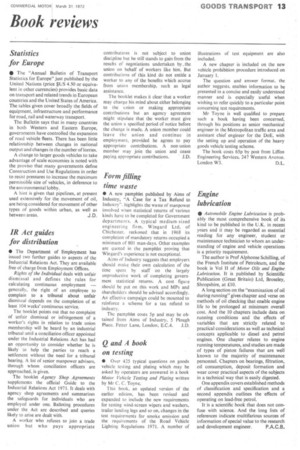IR Act guides for distribution
Page 15

If you've noticed an error in this article please click here to report it so we can fix it.
• The Department of Employment has issued two further guides to aspects of the Industrial Relations Act. They are available free of charge from Employment Offices.
Rights of the Individual deals with unfair dismissal and defines the rules for calculating continuous employment — generally, the right of an employee to complain to a tribunal about unfair dismissal depends on the completion of at least 104 weeks' continuous service.
The booklet points out that no complaint of unfair dismissal or infringement of a worker's rights in relation to trade union membership will be heard by an industrial tribunal until a conciliation officer appointed under the Industrial Relations Act has had an opportunity to consider whether he is likely to help the parties to reach a settlement without the need for a tribunal hearing. A list of senior manpower advisers, through whom conciliation officers are approached, is given.
The booklet Agency Shop Agreements supplements the official Guide to the Industrial Relations Act 1971. It deals with agency shop agreements and summarizes the safeguards for individuals who are employed under one. Balloting procedures under the Act are described and queries likely to arise are dealt with.
A worker who refuses to join a trade union but who pays appropriate contributions is not subject to union discipline but he still stands to gain from the results of negotiations undertaken by.. the union on behalf of workers like him. But contributions of this kind do not entitle a worker to any of the benefits which accrue from union membership, such as legal assistance.
The booklet makes it clear that a worker may change his mind about either belonging to the union or making appropriate contributions but an agency agreement might stipulate that the worker must give the union a specified period of notice before the change is made. A union member could leave the union and continue in employment, provided he agrees to pay appropriate contributions. A non-union member may join the union and cease paying appropriate contributions. J.D.




















































































